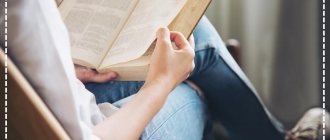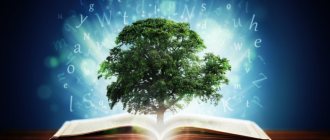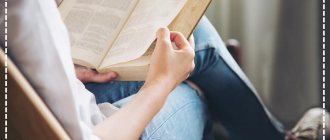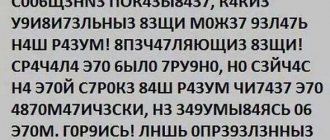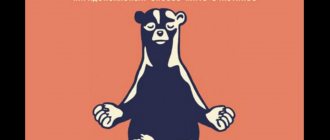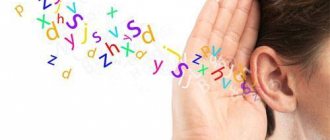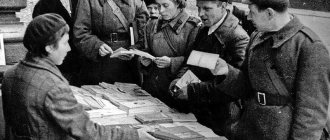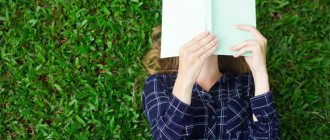Adapted translation of Melissa Chu's article on how to improve your reading quality.
The nature of the book has evolved. Society and technology have become different. Under the influence of a new way of life, the approach to reading has changed. For better or for worse?
Today, the same information can be presented in a variety of formats. When it comes to exactly how we should read, opinions differ.
What value does reading have for us?
It doesn't matter whether you prefer fiction or whether you prefer scientific information. Any information has undeniable value, be it a detailed description of research in the field of military equipment, or a biography of a creative genius filled with romanticism. As a rule, the greatest benefit comes from reading literature related to a person’s profession or specialty.
Being able to read correctly is very important, because the volume and quality of information we absorb directly affects our personal growth. But the invaluable value of reading has many other manifestations! Let's remember together the benefits that reading books brings to each of us:
Reading strengthens your memory. The more time a person spends reading books, the easier and faster he remembers any information. In a research experiment by the American Neurological Academy, which involved about 300 elderly volunteers, it was found that reading slows down the decline in memory caused by aging by more than 33%.
Books make us happier. This is exactly the conclusion that scientists from the University of Liverpool came to. After surveying more than 4,000 people, they found that people who devote their free time to reading have good self-esteem, easily overcome life's obstacles and are distinguished by bright positive thinking.
Books develop intelligence. On this topic, professors from King's College London and the University of Edinburgh conducted an experiment to prove that reading directly affects a person's personal development and improves analytical abilities.
Literature teaches us to think broadly. Books open doors for us to other fantasy worlds, giving birth in our minds to various pictures, characters and plots that we could not even imagine. By regularly indulging in reading, we push the boundaries of the usual, remove the shackles from our imagination. Thinking outside the box is a good skill that comes in handy in a situation that requires special intelligence.
Books broaden your horizons. Thanks to the huge variety of genres: history and science fiction, horror and adventure, detective stories and humor, books are an immense storehouse of the most diverse and valuable knowledge.
Each of us is capable of developing these genius sides and amazing qualities! However, such changes are possible only if we know how to read books correctly. Reading should not be aimless, just for show. We must move into the plot, immerse ourselves in the author’s intentions, feel all the experiences and joys described on the pages of the book. Let's move on.
The body and our speech
Our speech is inextricably linked with our body: how our body behaves is how we speak.
Experimental exercise “Counting to five”
- Raise your hand up
- Say the numbers out loud and bend your fingers
- Count to five loudly and expressively
You may not have noticed, but each finger curled the moment the number was announced.
You spoke energetically and your fingers flexed energetically. Now count loudly and slowly, also slowly bending your fingers.
The third part of the experiment: say the words loudly and quickly, but bend your fingers slowly.
As a result: nothing works! The reason is that our speech is synchronized with the body, and when we throw the system out of balance, we feel discomfort, it is inconvenient for us to either speak or bend our fingers.
What happens when we read a poem? Thoughts, beautiful and bright, on the one hand rush us forward, and a pinched body with arms crossed behind us pulls us back. At this point, the speech may not be interesting. Whether you are standing or sitting, try to keep your arms hanging, let them help you.
Classification of reading methods
In his research work of 1940, M. Adler, an American philosopher, identified and described in detail 4 ways of reading:
- Elementary. The simplest way, which does not require skills higher than those acquired in school. We simply read the text, correctly and easily perceive its meaning, and clearly follow the outcome of the plot.
- Inspection. The reader quickly scans the page with his eyes - from the beginning to the very end, “pulling out” the most important points. This option is useful for those who regularly have to work with a huge pile of educational or work material.
- Analytical. The reader's goal is to thoroughly study the material. We immerse ourselves in the text, thoughtfully “walking” along the page. Important additional notes, deciphering unclear words and expressions - these are the basics of analytical reading.
- Research. The reader is completely immersed in a specific topic, using 2 or more sources at once to refute, confirm or supplement facts.
Knowledge of this classification of reading methods is necessary to understand that different books are suitable for different reading methods. Always keep this in mind when starting a new book - try to determine which reading method will be most suitable for this book. This is the first step to learning how to read books correctly. Let's move on.
Tips to make reading more productive and enjoyable
Learning to read books correctly is not difficult. You just need to focus on the text, push away from reality and completely switch to the power of the written lines. But to immerse yourself in the essence and understand the meaning of what was written easier, you can use the following simple techniques:
Speech speed and volume
A trait that you should get rid of is the desire to speak quickly.
Keep your speech slow and loud. Only in this case is it possible to convey the meaning.
Poetry is the art of squares.
Go to the board and talk so that you can be heard. Loudness does not appear due to tension in the throat, but due to exhalation.
Of course, it is impossible to evaluate speech without a psychological aspect. When you speak quietly, people may not pay attention to you. It can even be comfortable - no one is watching, everything is quiet, calm and unnoticeable. But is this your goal?
When you become noticeable, you will feel eyes turning to you. You need to get used to the fact that you are a good speaker - they listen to you attentively. Get out of your comfort zone. Let's look at another exercise:
Being famous is not nice.
This is not what lifts you up. There is no need to start an archive, to tremble over manuscripts. The goal of creativity is dedication, not hype, not success. It’s shameful, meaning nothing, to be a byword on everyone’s lips.
B.L. Parsnip
Try to highlight both the first and last word on one exhale.
There is a rhythm here - the one in which Pasternak wrote the poem. The moment you understand the rhythm, you speak in the words of the author, you understand the work.
At this stage, you should not invest sensations; highlight the words in one exhalation. We all want to express something, but we usually do it by changing our tone of voice. It is much better to try to achieve the same goal with the help of breathing.
The little son
came to his father and the little one asked: “What is good and what is bad?” “ I have no secrets,” listen, kids, “ I’m putting this dad’s answer in the book.” V.V.
Mayakovsky
Try to apply the rule of exhalation, stress and pause to a poem by Vladimir Mayakovsky. You will understand that the poet deliberately chose a rhythm similar to communicating with children: you speak slowly, emphasizing each word so that the child can understand.
All works are different. There are complex and long ones with intricate sentences. There can be several stressed words
, but the pause for inhalation after them remains.
The rose is beautiful in shape and has a pleasant scent.
Hemlock is ugly and smells terrible. Byron, and Schiller, and Scott are perfect in spirit and body, but Burenin is ugly, and his spirit is not good
S. Cherny
Sasha Cherny wants to offend and even make the reader laugh, he started a game, so follow his logic of speech. Forget that breathing is needed to pronounce the longest possible number of words in a row.
Don't be shy to speak loudly
. Reflexes are born in the process, and the body will remember how you read poetry, helping yourself with your hands and movements.
Remember the expression “to read aloud, you need to understand what you are reading.” Listen to the most professional readers and their rhythm, radio announcers: they all read very slowly, it only seems to us that they speak quickly.
Choose each book responsibly
You shouldn't read everything you can get your hands on. Before you start reading, read reviews and reviews, carefully study the content, make sure that on the pages of the publication you will find exactly what you like. So, in a couple of minutes you can build an idea about the book, understand whether it is worth your attention and whether you will be interested in reading it. Believe me, by selecting only worthwhile materials from a pile of designer stucco, you will save a lot of time, which can be spent on more exciting and useful materials. Stick to only quality literature.
Line length and logical accents
Different poets use different line lengths, for Vladimir Mayakovsky it is a one-word ladder, for Alexander Pushkin it is 6-7 words.
As a rule, we subconsciously strive to read as many words as possible in one go. But it's not right. Each author puts not only mood and thought into a poem, he sets the rhythm.
Use the rule: read each line on one exhalation and highlight the last word, before the next, pause and inhale.
As soon as we begin to pause between lines, rhythm appears - and it is created not through intonation or emotion, but through breathing.
When reading poetry, children often do not give themselves the opportunity to exhale and get confused in fast-flying thoughts. With such a measured pace, as in the rule, you will be able to read the entire work to the end.
Try practicing with the passages below. All examples should be perceived not as literary works, but as a simulator. And you will see how emotions appear precisely thanks to breathing.
Once upon a time there was a priest
with a thick forehead. The priest went to the bazaar to look at some goods. Balda goes towards him , not knowing where. “Why, dad, did you get up so early? What are you asking for?” The priest answered him: “I need a worker: a cook, a groom and a carpenter.
A.S. Pushkin
Illustration “The Tale of the Pope and his worker Balda.” Source
- Tell me, uncle, it’s not for nothing that
Moscow, burned by fire, was given to the Frenchman? After all, there were fighting fights, Yes, they say, some more! No wonder all of Russia remembers Borodin Day! - Yes, there were people in our time, Not like the current tribe: The heroes are not you! They had a bad lot: Few returned from the field... If it weren’t for God’s will, They wouldn’t have given up Moscow!
M.Yu. Lermontov
Follow the rhythm that is laid out in the poem.
In the case of “Borodino” it is solemn, in the case of Alexander Sergeevich’s fairy tale it is measured and narrative. It is important for children to be encouraged to learn and read poetry in this format, line by line, so that they have time to pause.
Pursue Specific Goals
Many of us flip through the pages of a book completely aimlessly. But in order to learn to read literature correctly, you need to set a number of goals for yourself. Think in advance what exactly interests you, what question would you like to answer? What benefits would you like to get from the book? Perhaps by reading a novel you are pursuing a solution to a specific dilemma? Then you must focus all your attention as much as possible, try not to miss a single line. Keep your goal in mind until you finish reading the book.
Remember the subtext
Modern readers really don't know how to read books correctly. The proof is the fact that most people take novels and everything described in them literally. It is important to always remember the subtext left by the author. This can change the idea of the plot, and will also open up new facets and hidden meanings not previously noticed.
The subtext is hidden in the following:
- weather, season - weather conditions often express the feelings of characters, and seasons can have a huge symbol of the purpose of writing a novel or partially express a hidden meaning;
- the actions of the characters - the author can thus show the real world, drawing a parallel, for example, with politics;
- violence – in many works has a social or cultural meaning;
- geography - it can act in a unique role, revealing a whole separate topic, denoting a symbol, or showing the influence of the environment on the characters;
- salvation of the hero - many authors show the rebirth of the hero or a sharp change in his views by saving himself from death, for example, falling into a river and being saved, and sometimes the hero is killed, which also says a lot;
- the stigma of characters - physical disabilities can express symbols of human moral or psychological problems.
Always try to see the subtext.
Don't forget to take stock
Reading a book correctly means organizing the information received into shelves in your head. Mentally write a report on what you read, highlighting the most important: “What did I read?”, “What happened?”, “What caused this outcome?”, “What did the events that happened teach me and were they interesting?”, “Do I agree?” Am I with the author’s point of view?”, “What conclusions can I draw?”
Get acquainted with literature of different genres
Teachers and parents have been talking about the benefits of reading since elementary school. This idea is also supported by the famous inventor, creator of Tesla cars, billionaire Elon Musk. According to the entrepreneur, reading allowed him to achieve tremendous success in life and business.
This activity not only enriches our inner world, but also:
- develops intelligence and creativity;
- broadens the mind;
- improves memory;
- promotes the development of analytical thinking;
- increases vocabulary;
- allows you to correctly form and express your thoughts.
When choosing literature to read, self-development specialist Vlad Makeev advises not to limit yourself to one genre. Science fiction novels, biographies of famous people, economic works of Karl Marx, and materials on the history of rocket fuel will also be useful.
Reading books of different genres provides diversified personality development, affects empathy, analyticalness, imagination, etc.
Practice your skills regularly
Try to read every day. This “ritual” should become as routine for you as cooking. Read, delve into the essence of the idea, immerse yourself in the book. Soon you will see for yourself how your life will begin to change for the better! You will learn to concentrate on the reading process without being distracted by anything else. Your horizons will become much richer, your speech will be more representative. And all kinds of life’s adversities will no longer frighten you. If you want to learn how to train yourself to constantly read books, read this fascinating article.
Logical speech and correct breathing
The first thing that is important to remember is the logic of speech, something that reflects the relationship between language and thinking. If you want to express a bright thought, the speech should sound bright and loud, if you want to express a sad thought, it should be quieter, but still clear. In any case, breathing will help.
Without logical stress it is impossible to express thoughts, since one word in a sentence must still be the main one.
A classic example is the question “Is this your grandmother?”
. Try to rearrange the emphasis on different words, and the meaning of the question will change depending on the emphasis.
The second, even more classic example, is Krylov’s famous fable.
Sweated, sweated;
but, finally, he got tired, fell behind the Chest , and couldn’t figure out how to open it. And the Chest simply opened to I.A.
Krylov
Illustration for the fable “Larchik”. Source
Where should I put the emphasis on the last line?
When we put emphasis on the word "simply"
, then the question arises:
“simple” - how is it?
After all, the end of the fable is before us.
There is a feeling of incompleteness. The whole point is that the logical emphasis falls on the word “opened”
. The author does not mean the simplicity of the method, but the need to simply open the chest.
Re-read unclear points
If you come across difficult moments while reading, do not dwell on them. Continue reading the book in the way you are accustomed to, without going into complex words, metaphors and sayings. But don't forget to tag them. When the book is completely read, return to the puzzling passage and give it maximum attention. Use additional sources, re-read the controversial or unclear point several more times, use all your logic. You must study the material thoroughly, understand it as accurately and correctly as the author himself understood it. There should not be a word left in the book whose message is not clear to you. Don’t be lazy to work through the material, even if it takes a lot of time. Otherwise, you will never learn to perceive literature correctly.
Speed of thoughts and speed of speech
Speech is, first of all, practice. You can listen to hundreds of lectures on how to ride a bike, but this will not allow you to get on and ride.
Our thoughts work at great speed, and when we read to ourselves, we do it very quickly. Sometimes we skip huge paragraphs, not just sentences, descriptions of nature, the author’s reasoning and lyrical digressions.
But expressing thoughts out loud requires a certain skill, because we speak and read out loud for someone. This someone - an adult or a child - must clearly understand what idea you want to convey.
Painting by Ilya Repin “Pushkin at the Lyceum Exam”, 1911
Share your emotions from what you read
The best way to formulate your opinion is to write down your thoughts. Sit down, drink tea and carefully analyze the plot of the book , evaluate the usefulness of the information, remember the impressions that washed over you after reading the work. Highlight the most useful thoughts.
If you feel ready, then feel free to start writing a review. In the modern world, almost any social network is suitable for this. It's great if you have your own personal blog. When writing, be sure to use your favorite quotes from the book, wording, and valuable thoughts. Perhaps previously read literature will come to your aid, with which you can draw a parallel.
Sharing your thoughts with other readers is a very rewarding experience. You can discuss together a detail that worries you, or find an answer to a nagging question.
How to Read Effectively
Can we read? Read for real, as brilliant scientists and brilliant writers did? The answer to this question is simple. If you are not a brilliant scientist or a brilliant writer, then this article is for you. The development of the Internet has taught us to process large amounts of information quickly and superficially. Often we skim over the text, picking out only the main ideas, believing that we are comprehending the truth. Then you have to be surprised that after a while the book is perceived as a completely new text. So how should you read in order to reach the “ceiling” in understanding the book and remember information as productively as possible? Let's explore the process of getting the most out of your reading experience. Read more…
6
Training
Friends, the tips in this article will definitely help you improve your reading efficiency. But if you want to make a real breakthrough - increase your reading speed several times, develop attention and improve memory - sign up for the Speed Reading course from Vikium - a proven and reliable service for developing abilities. This course will help you:
- Activate brain activity
- Master the technique of instant concentration
- Increase your reading speed several times
- Develop the skill of voluntary attention
- Improve peripheral vision
- Develop perception functions
- Increase memory capacity
You can:
- Read an entire book without leaving the shelf in a bookstore
- Prepare for a presentation on your way to work
- Notice footnotes in small print
- Prepare for exams and tests faster
- Have more free time
- Be one step ahead of competitors
The course includes:
- Trainers for developing reading speed
- Texts to determine the speed and level of reading comprehension
- Exercises to develop attention
- Exercises to develop memory capacity
To personally see the effectiveness of the training, you can take 1 lesson for free right now.
How to start reading a lot
Reading books is one of the best ways to spend time. The book has amazing power and is able to transport the reader to another reality. The book makes us experience a lot of emotions and gain new impressions, changes our mood and makes our heart skip a beat or beat even harder. The book enlightens us and gives us new information. And how nice it would be if we could read at any time, absorbing hundreds of new pages. For all book lovers and bibliophiles who suffer from a lack of time to read interesting literature, we have prepared some practical tips that can correct the current state of affairs. Read more…
10
Specific methods and results of the experiment (39 books per year)
In 2021, I read 39 books thoughtfully and consciously. I want to share the techniques and approaches that helped me with this.
I love to read and I've always wanted to learn how to read more books. 4 years ago, I started trying to use different techniques and techniques that my colleagues and authors of feature articles advised me to increase the number of books I read. The result was 22 books read in a year, although previously I only read 10-15 books a year. This was my personal record at that time.
I couldn’t find any “super solution,” but working techniques appeared in my arsenal. Below is a brief description of the most effective of them. Using these techniques increased the number of books I read in a year by about 3 times.
The article contains comments from Roman Zhikharev, which give an alternative view of the advice.
Master speed reading
If you want to read not only correctly, but also a lot, master accelerated reading of books. Remember that speed reading is aimed not only at increasing the amount of information consumed, but also at its better assimilation. Using this skill, a person learns to quickly perceive material and remember it.
To develop speed reading skills:
- Don't say the words to yourself. Internal monologue slows down reading.
- Read in phrases or lines. The brain perceives the whole picture, so it is not necessary to split up information. Use your peripheral vision to capture entire lines with your gaze. In this case, it is better to focus your gaze in the center of the line.
- Don't reread the words. Returning to an unknown word slows down reading. When practicing speed reading, stay alert and focused. To stay on track, use your finger or a ruler to keep track.
- Use a timer to monitor your progress.
- Set a goal and practice often.
Reading books is the easiest way to gain useful knowledge in any area of life. Read the works thoughtfully and slowly. Think about, analyze and put into practice the information received. This approach to reading will allow you to improve your personal and professional skills and achieve success in life.
Original article: https://www.nur.kz/family/self-realization/1908488-kak-pravilno-chitat-knigi-podborka-sovetov/
